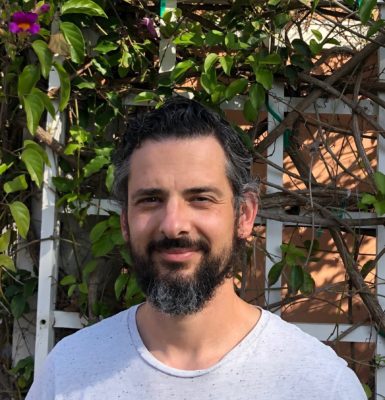 Professor, Department of East Asian Languages and Cultural Studies, University of California, Santa Barbara
Professor, Department of East Asian Languages and Cultural Studies, University of California, Santa Barbara
My favorite memory of Japan from that time was attending and participating in matsuri all over Tokyo. From a historian of religion’s point of view, these were rare and wonderful occasions to catch a glimpse of what the zenith of neighborhood life would have been like in traditional Japanese communities in the past.
Professor Steavu was a Japan Foundation Fellow between April 2006 and May 2007, for a total of 14 months. Based in Tokyo, he took occasional trips to Kyoto for research.
My research focused on Daoism in Japan. Being in Japan helped me dig up a wealth of sources on the topic, primary and secondary, in university libraries and bookshops. It also enabled me to undertake some fieldwork, visit sites first hand and experience the living vestiges of medieval or early modern religion in Japan. Perhaps most importantly, being in Japan for an extended period of time gave me an opportunity to participate in Japanese academia (attending talks or conferences, giving talks, taking graduate courses). As a result, a new world of scholarship was opened and I was able forge meaningful and lasting professional ties, as well as some friendships, with Japanese scholars.
My favorite memory of Japan from that time was attending and participating in matsuri all over Tokyo. From a historian of religion’s point of view, these were rare and wonderful occasions to catch a glimpse of what the zenith of neighborhood life would have been like in traditional Japanese communities in the past. But more generally these festivals also had an indescribable energy like no other.
As a graduate student with limited funding opportunities, the Japan Foundation fellowship generously offered me the opportunity to pursue vital PhD research on site, in Japan, at a crucial time in my career. The research that I completed at that time contributed to the publication a monograph as well as a co-edited volume, so the positive impact of the fellowship can still be felt, years after my time in Japan had come to an end–not to mention the fact that I’ve continued to collaborate with some of the scholars I met then.
Since my fellowship, I taught in Germany and currently teach and conduct research at the University of California Santa Barbara. I have been focusing on the history of Daoism and Buddhism. I have also looked at their intersection with the history of medicine. Very generally, I’m interested in how ideas travelled in the globalized past and how that circulation has shaped today’s world.

 Professor, Department of East Asian Languages and Cultural Studies, University of California, Santa Barbara
Professor, Department of East Asian Languages and Cultural Studies, University of California, Santa Barbara